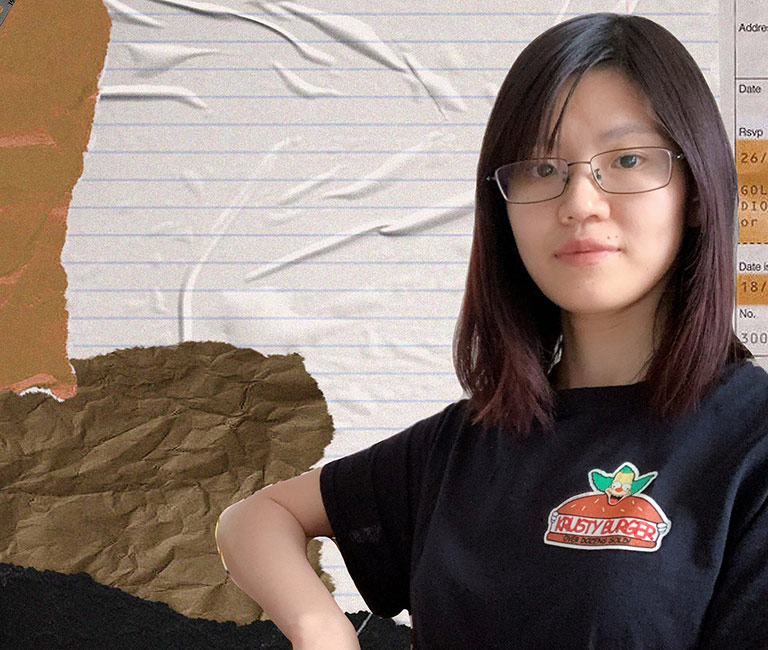
“From One Student to Another” is a series by Yi Wen, a PhD student in CEE’s transportation engineering program who conducts interviews with fellow students. As the new Institute of Transportation Engineers (ITE) president, Wen is committed to sharing the stories of students in the transportation program as a way for current students to better know their colleagues, to inspire and motivate other students, and to provide a platform for interviewees to reflect on their UT journey.
This interview is with Yuandong Liu, a recent graduate of the UT transportation doctoral program. She is now working as a post-doctoral researcher at Oak Ridge National Laboratory.
Yi Wen: Why did you decide to pursue a PhD degree in the first place?
Yuandong Liu: I am motivated by intellectual and scientific curiosity. Also, I was excited about the ideas to study abroad, exposing myself to a different culture, and exploring my possibilities.
YW: As an international student, what is the biggest challenge for you?
YL: Learning to be independent. I need to overcome the language barriers and cultural differences and learn to rely on myself when I find myself in all kinds of difficult and challenging situations. American lifestyle differs from China’s. I definitely feel lonely sometimes, which is also a challenge.
YW: Could you briefly tell us about your dissertation and the major findings?
YL: My dissertation assesses real-time traffic states, detecting the temporal and spatial extent of abnormal events, such as incidents with various data sources. The major contribution of the dissertation is to point out the biases of existing speed calculation methods and to propose an un-biased method to obtain the fundamental variables, specifically, speeds, with emerging data collection technologies. Following answering this fundamental question, we would develop self-learning algorithms to learn the traffic states and detect abnormal patterns on their own.
YW: If you could start your PhD journey all over again, what might you do differently and why?
YL: First, I would spend more time thinking instead of directly devoting myself to a research idea. The time we spend to define a problem and formulate the idea is valuable. Second, I would spend more time communicating with my advisor and other professors. I tended to solve problems all on my own at first. Starting from the third year, I worked closely with my advisor and improved significantly since then. Advisors and professors are valuable resources to PhD students. They have more experiences and have gone through the same period that we are experiencing now. Their guidance and advice can help us avoid detours.
YW: What’s your plan after obtaining your PhD? I believe many people are interested in your ORNL work experience, could you tell us your role there and what is it like?
YL: I am now a post-doc researcher at ORNL. The subcontractor experiences during my PhD studies prepared me well for the work at ORNL. During my PhD studies, I worked part-time at ORNL as a subcontractor in the Energy and Transportation Science Division and participated in several projects. The division includes multiple research groups, and each group has its own research directions.
My group is specialized in transportation analytics and decision making. Several research projects in our group that I find interesting are Chattanooga digital twins, building a system that simulates the traffic patterns of a city, freight analysis framework and non-motorized transportation network establishment. I worked on the last two projects. The freight analysis framework project supplies the nation with freight movement data and supports research institutes as well as government agencies in freight-related transportation analysis and planning. The non-motorized transportation network project aims to build a website that supports uploading of non-motorized transportation network data from different agencies across the nation which will facilitate non-motorized transportation network analysis.
At ORNL, we work in small groups, which is similar to research teams at universities. There are seven team members in my group, including a team leader, three senior/junior researchers, two post-docs, and me. The group members collaborate with each other on writing proposals and delivering projects. Compared to PhD studies, I spend more time when working at ORNL delivering projects instead of doing my own research. The research is more application-oriented at national labs, thus we don’t have much flexibility to explore an idea. Also, the research priority is defined by sponsoring agencies, thus we don’t have much freedom to pursue our own research as well.
Nevertheless, within the defined context, we still have the freedom in terms of how we approach the problems and solve them. I would say I have a better work-life balance at ORNL. Workload at ORNL is not as heavy as at university as a PhD student. The work usually can be done during working hours.
YW: Last and the fun question, what’s your favorite place in Knoxville and why?
YL: My favorite place is downtown Knoxville. It is a good place for a stroll. Locals come to shop and eat and socialize in the downtown area. I enjoy the open-air atmosphere there. Many ceremonies and celebrations take place at downtown during holidays and weekends. I’d love to join the crowd and expose myself to the delightful moments.